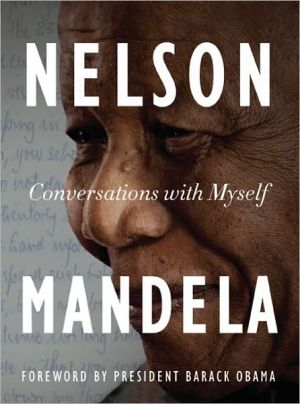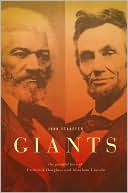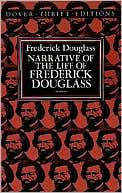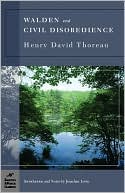Books on Fire: The Destruction of Libraries throughout History
A historical survey of the destruction of knowledge from ancient Babylon and China to modern times\ • Includes the three separate destructions of the Library of Alexandria as well as many equally significant collections around the world\ • Examines the causes of violence directed at repositories of knowledge\ • Looks at the dangers posed by digitalization of books to the free availability of knowledge in the future\ Hebrew, Hindu, Nordic, and Islamic traditions share the belief of a vast...
Search in google:
Almost as old as the idea of the library is the urge to destroy it. Author Lucien X. Polastron traces the history of this destruction, examining the causes for these disasters, the treasures that have been lost, and where the surviving books, if any, have ended up. Books on Fire received the 2004 Société des Gens de Lettres Prize for Nonfiction/History in Paris. French Publisher's Agency "Livres en feu is Lucien X. Polastron's magisterial history of the destruction of books and libraries over the millennia. Thoroughly impressive in scope, Polastron's work takes the reader on a journey from ancient Mesopotamia to modern day times, when just recently Iraq's national library was pillaged during the U.S.invasion."
from Chapter FOUR\ People of the Book\ As we saw in Cairo, and as was also true in Baghdad and Cordoba, the richness of the Jewish library in the medieval Arab world was remarkable. The reader with means collected the books of Maimonides, Galen, Averroes, Claudius Ptolemy, Avicenna, Aristotle, and Hippocrates and arranged them around the Bible or the Talmud. In northern Europe, on the other hand, the shelves were infinitely less laden, but they drew more attention, and with it, hostility.\ “Because of the blasphemous allusion to the Savior and the Virgin” that some claimed to see in the library of the Israelites, this collection, and in particular the Talmud, which often formed its unique basis, was the subject of a permanent and almost obsessive hunt. Although the Syrian king Antiochos had started the fad long before, it was a converted Jew named Nicolas Donin who, in 1239 aroused the vigilance of Gregory XI regarding the hellish reading material of his former community.\ In June the pope sent a secret circular to the monarchs and prelates of France, England, Spain, and Portugal ordering that during the Sabbath of the next Lent, they were to take advantage of the time when all the Jews were in synagogue to collect all their books and send them to the mendicant brothers for analysis.\ On May 15, 1248, after a period of time that would give the impression all had been read, the pope condemned Judaic literature and all its horrors. France, however, was not able to bear waiting until his verdict came in: The cremation of fourteen cartloads of books took place on a public square in Paris in 1241, followed by ten carts another day in 1244. In 1263, Clement IV enjoined the king of Aragon and his lords under pain of excommunication to compel the Jews to hand over all their books for examination. In 1299, it was Philip the Fair who ordered the judges to assist the inquisitors in the holy chore, and another three loads of books were burned in Paris as a result. The provinces were not left out: Bernardo Gui had two cartloads of confiscated books paraded for several days through the streets of Toulouse before the volumes were taken to be burned.\ Thus a kind of papal routine was established: John XXII in 1320 and Alexander V in 1409 and in 1553 Julian III gave strict instructions for all the books from the Jewish shelf to be gone over with a finetoothed comb, with an eye to getting rid of them. These books seem to form a virtual library displayed on the shelves of the centuries with an obstinacy that exacerbated an unvarying impulse to annihilate them. Another twelve thousand books to be burned were found in Cremona in 1569. It was so extreme, says one author, that it is admirable that the “Talamuz” (Talmud) was able to survive such fervor.\ This leads to the story of the Reuchlin report. Around 1508, Pfefferkorn, a Jewish butcher recently baptized by the Dominicans and offered the benefits of a sinecure, took pride in denouncing the horrors studding the texts of his former religion. Although he could read neither Hebrew nor Latin, his complaint made its way to Emperor Maximilian, who decided to officially pose this question: Should the books of the chosen people be confiscated and destroyed by fire? He ordered a report from two experts: the high inquisitor of Cologne, whose conclusions may as well have been written in advance, and a law professor, Johannes Reuchlin.\ A friend of Erasmus and a good Christian, the humanist Reuchlin had written a Hebrew grammar in 1506, and, like Marsilio Ficino and Pico dela Mirandola, whose company he also frequented, Reuchlin was a commentator on the kabbalah in which, according to him, lay the base of the true Christian faith. He did not like Jews particularly, but he idolized books—and logic. His jurist response entitled Recommendation Whether to Confiscate, Destroy and Burn all Jewish Books marks a red-letter date (1510) in the history of tolerance.\ Reuchlin launches his argument with the observation that the Jews are subjects of the emperor and benefit from the protection of the law. As a good rationalist, he erases the superstitious murk surrounding their literature by drawing up a complete panorama of it: scriptures, commentaries, treatises of philosophy and the various sciences, then poems, fairy tales, and satires. Perhaps in this final genre, he concedes, any who look for it can find anti-Christian sentiment, but this concerns only one book with “its own title, just as the author imagined it,” and an entire people cannot be held responsible for individual expression.\ For the rest, Reuchlin appeals to Aristotle and St. Jerome: How can we oppose what we do not understand? “If someone is taken by an urge to write against mathematicians and he knows nothing of mathematics or even arithmetic, wouldn’t he make himself the laughing stock of all?” He then takes his readers into the realm of linguistics and the definition of truth and falseness, then on the dialectic of God, necessarily Hebrew. After this there is what may well be an argument of weight: If there were reasons to burn the Talmud, then our ancestors would have done so centuries ago, for they were much more zealous with regard to matters of Christian faith than we are.\ This remarkable defense was one of the first texts to benefit from the stunning novelty of the printing press, and its publicity did not fail to bear fruit: More Israelite books were confiscated and burned and the writings of Reuchlin himself were burned by the Inquisition of Cologne, while he himself escaped death by fire as a heretic only through dying in 1522. Yet the first assault against general anti-Semitism had been waged. This subtle Recommendation is in fact the first argument which suggests that German law differs from the Catholic law of Rome. One of Reuchlin’s most attentive readers was named Martin Luther.
Acknowledgments viiiPreface ixIn the Cradle of Libraries 1The Papyrus Region 6Islam of the First Days 42People of the Book 73Asia before the Twentieth Century 80The Christian West 112The New Biblioclasts 169Peace Damages 238An Embarrassment of Modernity 267Flameproof Knowledge 282Epilogue: Return to Alexandria 292The Great Writers Are Unanimous: Delenda est bibliotheca! 300A Short History of the Census of Lost Books with a Legend to Bring It to a Close-The Hidden Library 316A Selective Chronology 322Notes 328Bibliography 343Index 363
\ Mike Gleason"If you are lover of the printed word, this book will open your eyes, and most likely shock you."\ \ \ \ \ Fernando Baez"This book contributes to a new understanding of the devastation caused by book burning. Every reader's worst nightmare is recorded with horrid fascination."\ \ \ Peter Skinner"In addition to an intensive survey of book destruction as policy, Books on Fire provides a splendid education in book collecting as a passion—as well as book production, library management, and great bibliophiles and their collections. . . . Jon E. Graham’s masterful translation and the author’s helpful chronology enhance this book."\ \ \ \ \ Douglas R. Cobb"A book on the subject of books - not only about books, but about the burning of books and libraries - might give the impression of being dull and boring. That is far from the case with Books on Fire . It is a fascinating account of the destruction of the world’s greatest libraries that will haunt the dreams of bibliophiles who read it . . . . Highly recommended."\ \ \ \ \ Donna Seaman"Polastron performs marvelous feats of synthesis and revelation as he describes the lost libraries of antiquity; portrays such library makers as the Sumerian Ashurbanipal, the caliph al-Hakam (circa 970), and Liu Bang, founder of the Han dynasty; chronicles dramatic assaults against libraries; and offers discerning analysis, backed by rarely aired facts, about the crucial role books play as both vehicles of knowledge and freedom and instruments of tyranny"\ \ \ \ \ Curled Up with a Good Book"Polastron traces the history of this subject in an informative way, never reducing or limiting the importance of the loss of so much knowledge merely to dates and numbers of volumes lost . . . It is a fascinating account of the destruction of the world's greatest libraries that will haunt the dreams of bibliophiles who read it like the best horror novels of Stephen King or Clive Barker."\ \ \ \ \ The Midwest Book Review"A 'must-have' history for public libraries and the shelf of any book lover."\ \ \ \ \ Jeff Farrow" . . . penned by a skilled writer who knows that the best way to convey history is by letting the reader in on behind the scenes descriptions, gossip, and scandal. . . . . I highly recommend Books on Fire to the historian, the literary enthusiast, and to all champions of free thought. Books on Fire is a sheer pleasure to peruse."\ \ \ \ \ Sep 07"The exhaustively researched Books on Fire is a comprehensive and authoritative historical survey of the destruction of knowledge from ancient Babylon and China to modern times."\ \ \ \ \ Fernando Báez"This book contributes to a new understanding of the devastation caused by book burning. Every reader's worst nightmare is recorded with horrid fascination."\ \ \ \ \ Sep 07 SirReadaLot.org"The exhaustively researched Books on Fire is a comprehensive and authoritative historical survey of the destruction of knowledge from ancient Babylon and China to modern times."\ \ \ \ \ French Publisher's Agency"Livres en feu is Lucien X. Polastron's magisterial history of the destruction of books and libraries over the millennia. Thoroughly impressive in scope, Polastron's work takes the reader on a journey from ancient Mesopotamia to modern day times, when just recently Iraq's national library was pillaged during the U.S.invasion."\ \ \ \ \ From the Publisher\ "The exhaustively researched Books on Fire is a comprehensive and authoritative historical survey of the destruction of knowledge from ancient Babylon and China to modern times."\ \ \ \ \ Children's LiteratureA weighty but intriguing undertaking, Polastron presents the history of burning and pillaging written materials over the last several thousand years. It is a recurring theme of intolerance and fear, fear of what free thought will bring, particularly to those in power. Whatever the basis of power, whether money or greed or religion, those holding the power fear those who question it. Tablets are smashed, scrolls destroyed, books burned. Writers of the materials often faired little better than their products. What is perhaps most sobering is that the destruction continues. A selective chronology lists library burnings, from the Library of Thebes in 1358 B.C.E., to the destruction of almost all Iraqi libraries as a result of the 2003 American "libervasion." One can only hope that freedom of thought will continue to steadfastly survive the flames of any regime, and, indeed, current day Cuba shows us that, while its libraries may be severely limited in content, dozens of clandestine bookstores are happy to provide literature which allows the human spirit to think, question, and thrive. Reviewer: Kathryn Erskine\ \ \ \ \ Library JournalThe backbone of this somewhat scattered book is the question, Why have people repeatedly destroyed libraries? It's not always been disagreement with what the books said. Sometimes, the mere presence of books is enough. The Khmer Rouge thought books a sign of moral degeneracy. Mao's wife wrote, "Better to have uneducated workers than learned exploiters." All too frequently, religion is the inciter: Is "monotheism without intolerance" thinkable? Polastron considers how the ravages of time-and humanity-can affect books and manuscripts. The result is a serious rant, furious and bitter, against our continued attempts to control memory and knowledge from ancient times to today (e.g., Hitler, Stalin, Mao, and Pol Pot). Destroy a people's history, collected in their books or manuscripts, and you destroy their sense of themselves-thus, Christians burned Moorish books, Nazis destroyed Jewish and Polish books, and Serbs burned Bosnian libraries. The author's indignation burns white hot but does not obscure his comprehensive survey of book destruction worldwide-Asia and Africa as much as the Western world. While some chapters are not well conceived or well written-just the venting of spleen-as a whole this is a sobering catalog of the annals of destruction. Recommended for academic collections and larger public libraries.\ —David Keymer\ \ \








